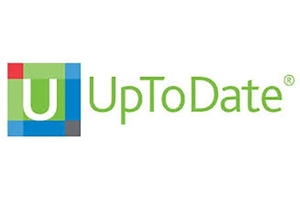SEE ALSO: Physiotherapy journals/periodicals
Databases and Information Gateways
- PEDro – Physiotherapy Evidence Database:
Evidence for Physiotherapy – randomised trials, systematic reviews and clinical practice guidelines.
-
OTSeeker
Contains abstracts of systematic reviews, randomized controlled trials and other resources relevant to OT/PT interventions. Most trials have been critically appraised for their validity and interpretability.
-
REHABDATA: produced by the National Rehabilitation Information Center, is the leading literature database on disability and rehabilitation. The database describes over 80,000 documents covering physical, mental, and psychiatric disabilities, independent living, vocational rehabilitation, special education, assistive technology, law, employment, and other issues as they relate to people with disabilities.
-
Cochrane Library
Contains detailed, structured, systematic reviews on topics relating to healthcare.
-
Physiotherapy Flashcards
-
Rehab+
Free (registration required) alert system for quality articles; also contains a searchable database of citations to quality evidence selected by McMaster University in selected topic area.
-
AbleDataProvides objective information on assistive technology and rehabilitation equipment available from domestic and international sources to consumers, organizations, professionals, and caregivers. Sponsored by the National Institute on Disability and Rehabilitation Research.
-
Physiopedia: “a Wikipedia for the physiotherapy profession”
-
Wheeless’ Textbook of Orthopaedics11,000 pages with more than 5,000 images. Each topic is fully searchable by alphabetical, anatomical and keyword searches. Or just click on a particular part of the skeleton for easy access. (Duke University Medical Center’s Division of Orthopaedic Surgery, in conjunction with Data Trace Internet Publishing, LLC.)
-
Anatomy of the Brain
Free from The University of British Columbia, the Neuroanatomy website contains a Web Atlas of photographs, a Stroke Model, 3D Reconstructions and a Neurotutorial. -
ADAM Medical Encyclopedia: includes over 4,000 articles about diseases, tests, symptoms, injuries, and surgeries. It also contains an extensive library of medical photographs and illustrations.
-
Google Scholar: Web search engine for multidisciplinary scholarly literature.
-
Trip Medical Database : Trip medical database is a clinical search engine designed to allow users to quickly and easily find and use high-quality research evidence to support their practice and/or care. As well as research evidence, Trip allows clinicians to search across other content types including images, videos, patient information leaflets, educational courses and news.
-
National Institute for Health Research (NIHR): Find information about research funding, impact, priorities and emerging health technologies.
-
NHS Evidence: Authoritative clinical and non-clinical evidence and best practice information sources.
- Internet for Allied Health: a free online tutorial to help university students develop their Internet research skills.

